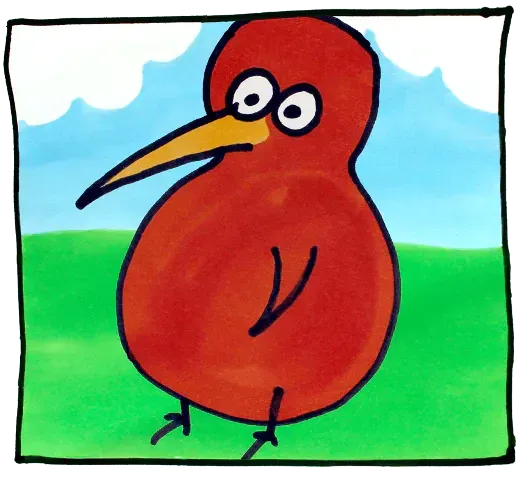I’ve heard of Creative Commons, but I’m not really sure what it is.
Fair enough. In a nutshell, the most open Creative Commons licences allow your audience to share, remix and reuse your work, without having to ask your permission in advance. For more details, check out this video, have a look at our resources page, peruse the range of international videos and then, if you’ve still got any questions, flick me an email: admin@creativecommons.org.nz
If I use Creative Commons, I won’t be able to make any money, right?
Wrong. There’s nothing about using a Creative Commons licence that stops you from making money. Remember, with Creative Commons licences, you keep your copyright. All the licences do is give your audience advance permission to share your work.
But if I give my work an open licence, how will I make money?
Fair question. There are a variety of possible models. If you’re a painter, you might share digital copies of your work to generate publicity, and to attract buyers beyond the relatively small New Zealand art scene. If you’re a musician, you might use an open licence to sell tickets to your shows. If you’re a writer, you might decide that releasing a digital copy, with all the free distribution and publicity this implies, will increase sales at book-stores.
Will this really work for everyone?
There are no guarantees, but an open licence means that the potential pool of people interested in your work–and willing to pay for some version of it–is many, many times larger. It’s worth remembering that most New Zealand artists don’t make a living selling their work, but have to rely on support from funding agencies like Creative NZ or, more likely, hold down a day job.
It sounds a bit radical for me. What’s wrong with the old models of production and distribution?
Quite simply, they pre-date the internet. Digital production and distribution channels provide artists with much larger potential audiences. At the very least, artists should consider pursuing both models at once, using online publicity to drive more conventional, off-line opportunities.
Right. But what’s this got to do with Creative Commons?
Creative Commons licences give your audience permission to share and–if you decide to adopt our free culture licences–remix and reuse your work. This will ensure your work is experienced by as many people as possible. Without an open licence, it is illegal for your audience to share or reuse your work.
Do I have to licence everything?
Nope. While some people like to licence everything they make, others choose to dip their toes in the Creative Commons waters. Gary Henderson, a playwright and theatre director, chose to licence a few scripts. Jem Yoshioka published an entire comic, Sunshine, on her website, while Gary Peters put up some images of his installations. While Dylan Horrocks’s Hicksville is published under full copyright, the comics on his website are all made available under a Creative Commons Attribution Non Commerial licence.
I’m not a lawyer. Isn’t this going to be a hassle?
Wrong again. Creative Commons licences are free and easy to understand. While we love to hear from licence users, you don’t even need to register: all you need to do is figure out which licence you’d like to use, then copy and paste the icon and licensing statement from the Creative Commons website. The Creative Commons icon contains HTML metadata, enabling search engines to find your work. With our new licensing tool, it really is ridiculously easy.
But I don’t read legalese. How do I know what I’m getting myself into?
I sympathise. But unlike many legal documents, our licences have been specially translated into human-readable language, so you and your audience know exactly what kind of licence you’re providing.
I’ve licensed my work. What happens next?
Here’s the thing: We actually have no idea. No one does. That’s the beauty of an open licence; it’s also the beauty of the internet. Because works with a Creative Commons licence can be freely shared, your work could travel around the world. This might not necessarily happen to your work, though under the default All Rights Reserved of full copyright, your audience would have to break the law for this happen.
Give me some success stories.
Alright. Your openly licensed work might, like Bronwyn Holloway Smith’s Ghosts in the Form of Gifts, get picked up for an American art show. It could, like Disasteradio, help you tour the world. Your work could, like nineteen year old American photographer Gage Skidmore, end up featuring in major newspapers and magazines, including The Atlantic and American news network MSNBC.
Impressive, but how will people know it’s my work?
The six main Creative Commons licences all requires users to provide attribution, including a link back to the original work. This means that everyone who sees your work will always know the original author and be able to visit your website.
What if people don’t follow the conditions of the licence?
If people break the conditions of your licence, then the licence is revoked.
Tell me again why I’d want to use Creative Commons?
There’s a bunch of reasons. It might be because you want to:
- Maximise exposure and increase distribution;
- Use an innovative business model;
- Contribute to and participate in the public sphere;
- Encourage collaboration; or,
- Grow the commons.
If I do this, will you help spread the word?
Sure. We’re always looking for new case studies. Give us an email and let us know what you’ve been working on: admin@creativecommons.org.nz
